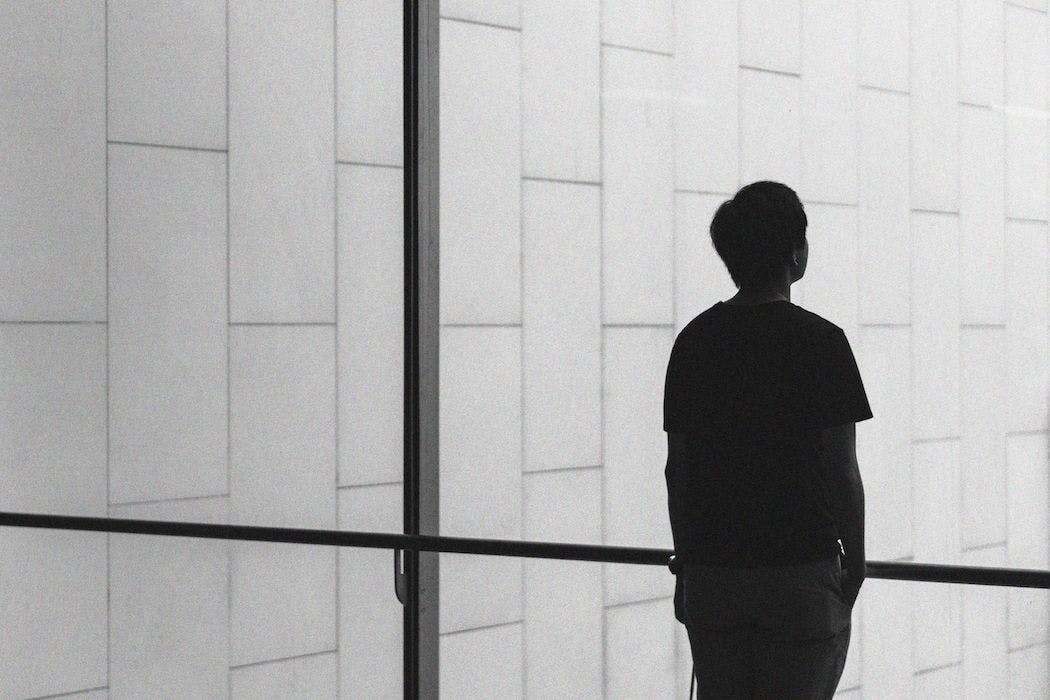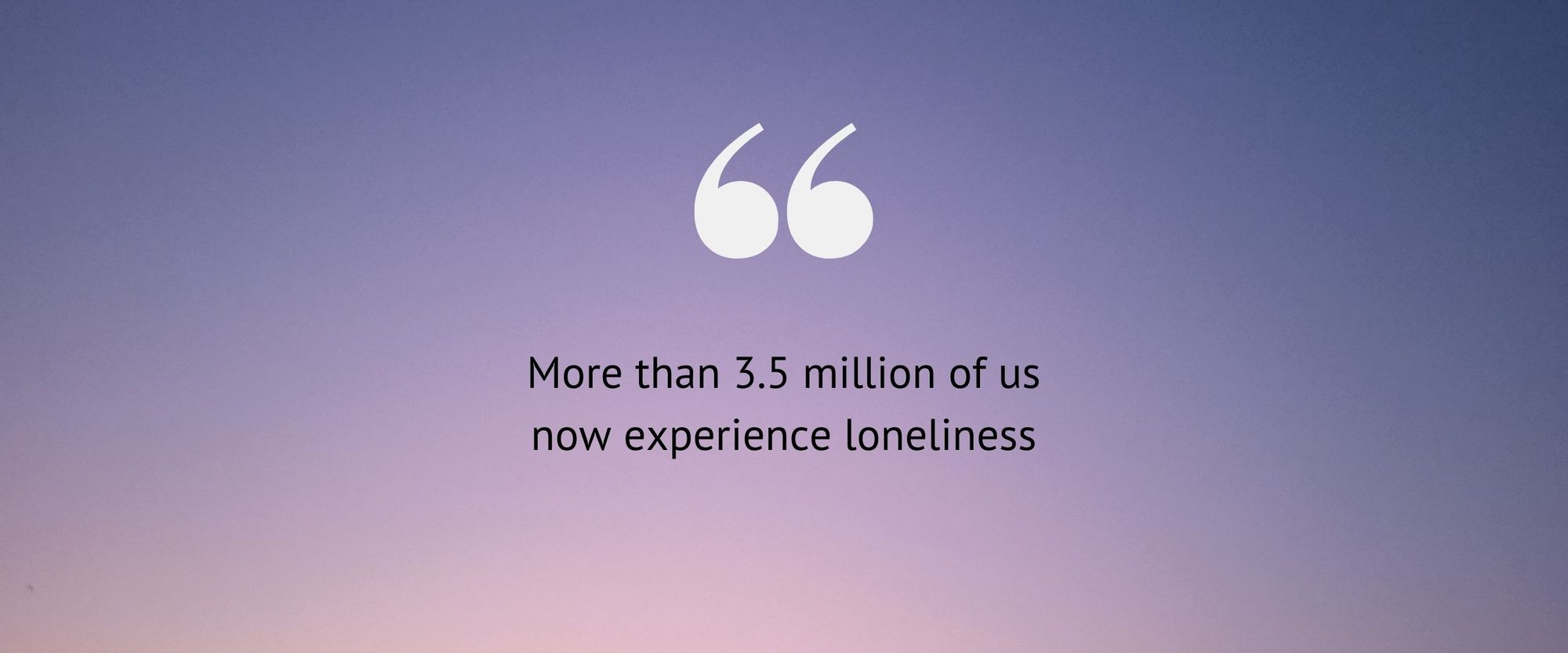How to tell if you’re lonely (and what to do about it)
updated on Feb 15, 2023

Are you alone or lonely? There’s a big difference, and the latter can really affect your mental wellbeing. But finding the cause of your loneliness could be the start of your journey to overcoming it
While many people love grabbing some ‘alone time’, others may have had more than enough – research from the Mental Health Foundation reveals that nearly 30% of us feel lonely some or all of the time. That figure jumps to 70% for people who’ve felt lonely at any point in the last month.
Feeling lonely now and again is a normal part of life, but if those feelings continue, loneliness can negatively impact our mental health. So, what’s causing us to feel lonely, and how can we tackle the issue to help everyone feel more connected?
Alone or lonely?
Although they sound similar, there’s a big difference between being alone and feeling lonely. “Being alone means you can be in your own space with no one around you and feel perfectly happy. But when you’re lonely, you feel the absence of other people,” says counsellor Jenny Warwick. “As a result, loneliness makes you feel isolated and unhappy.”
You can also feel lonely in a big group of people. Jenny says: “You might feel as though no one ‘gets’ you, or feel isolated because of an experience you’re going through, such as bereavement, that no one else there has experienced.” And while we often choose to be alone, none of us choose to be lonely.
That’s because loneliness makes us feel sad, and as if there’s a gap between us and other people. This could be a physical gap – if you live somewhere remote, for example – or an emotional gap; a lack of connection with others.
Feeling lonely can also trigger emotions we might not traditionally associate with loneliness. “You can be quite hard on yourself, asking “Have I done something wrong?”, or “What’s wrong with me?”’ says Jenny.
Loneliness often leads to comparing yourself to others, especially on social media. This is more than FOMO when looking at photos of parties or someone’s holiday, but feeling like you don’t deserve those things. This can turn into a vicious cycle of feeling lonely, rejected, withdrawing, and feeling lonelier as a result.
What causes loneliness?
The most obvious cause in recent times has been the Covid-19 pandemic – lockdowns, social distancing, travel restrictions, plus the on-going stress and feelings of isolation, to name a few. The pandemic also brought some people’s emotions sharply into focus.
Jenny says: “You might’ve thought you were OK being on your own, but the past few years made you realise you were covering up feelings of loneliness by keeping busy. Being forced to spend so much time alone has made many people recognise the fact they were lonely all along.”
Social media can be a big contributor to loneliness, and not just because it feels like everyone is having fun without us. Dr Dean Burnett, neuroscientist and author of The Happy Brain (£12.99, Guardian Faber Publishing), says that although the friendships we make online are genuine, the way our brains work means they cannot replace real life connections – and these are the most effective in preventing loneliness.
He says: “Some people distinguish between two types of loneliness: social loneliness, where we lack human contact; and emotional loneliness, where we have human contact, but lack meaningful emotional connections as part of that.” Our brains build those emotional connections by interacting with others, taking in facial expressions, stance, gestures, tone, inflection and much more.

“Unfortunately, even the best technology can’t convey the full suite of information that our brains have evolved to expect from real world interactions,” explains Dr Burnett. So, while you can have ‘armies of virtual friends’, you can still feel lonely if you don’t feel emotionally close to any of them. That’s why online friendships are unlikely to be as rewarding as those we form in the real world.
Who we think should feel lonely can also stop us recognising our own loneliness. A recent report by the MHF found people overestimate how lonely the elderly or those living in rural areas might be. We overlook those who are ‘lonely in a crowd’ too, such as students, carers, or people living in urban environments.
The MHF report also identified that younger people, aged 16–25, felt lonelier than older people, and more often. So, if you’re a young person living in a city, who spends a lot of time online, you could be experiencing loneliness, but dismissing your emotions as something else, such as anxiety.
Some medical conditions can also lead to loneliness, either because you physically can’t get out to meet friends, or your mental health stops you feeling able to do so. Whatever the cause, you can take steps to overcome feeling lonely.
Tackling your loneliness
Jenny says: “It took a while for you to start feeling lonely, so it will take a while to start to feel better.”
Things will improve, but joining a gym, volunteering, or putting yourself out there straight away can feel overwhelming. Treat yourself with compassion, and recognise that this is where you are in your life right now.
Although social media can contribute to feelings of isolation, it can also help you create more ‘real life’ relationships. If you want to widen your friendship circle, or feel more connected to your community, try:
Bumble BFF
This is like a dating app, but for friends. You’re matched with same-sex people Bumble thinks you’d get on with, then you simply swipe right to start chatting.
Meetup
No weekend plans? Meetup lists local events and activities where you literally meet up with groups of people who like the same things as you, from comedy nights to classical concerts.
NextDoor
If you’ve just moved, it takes time to settle in. Enter NextDoor, the app that connects you with your neighbours, where you can find out about everything, from BBQs to the bins.
BorrowMyDoggy
This website matches busy dog owners with people who would love to walk or dog-sit their pooch. This should be on prescription!
You can also try traditional ways to make friends, such as joining a running club – try parkrun for a weekly 5K with no pressure – sign up for fitness classes, like yoga, or start learning another language. Not only will you reap the mental health benefits, you’ll also meet people with similar interests.
If you’re missing a physical connection, book yourself in for a massage. Jenny says: “This helps release feel-good chemicals in your body and brain, and gives you that connection without the risk of rejection.”
You could also book sessions with a counsellor or therapist. They will listen without judgement, and can help you feel less alone. This really helps if you’re embarrassed talking to friends about how you feel.
And although it sounds like a cliché, remember you’re not alone; statistics show more than 3.5 million of us now experience loneliness. Jenny says: “There are people around you who feel lonely, so reaching out to a friend, neighbour, or colleague could help beat loneliness for both of you.”
It’s not quite 3.5 million, but it’s a great start.
If you are struggling with the effects of loneliness, visit the Counselling Directory or speak to a qualified counsellor.

